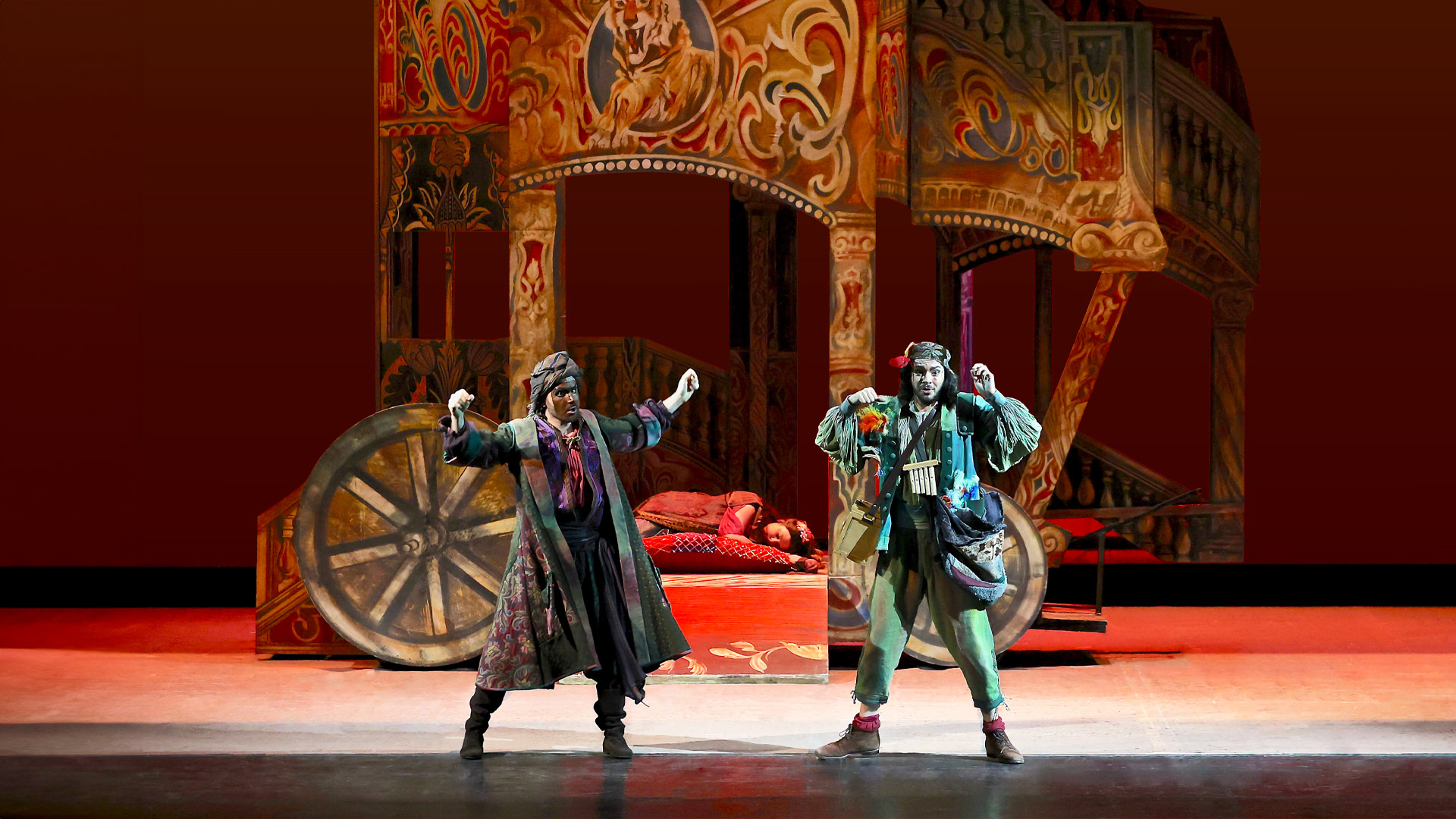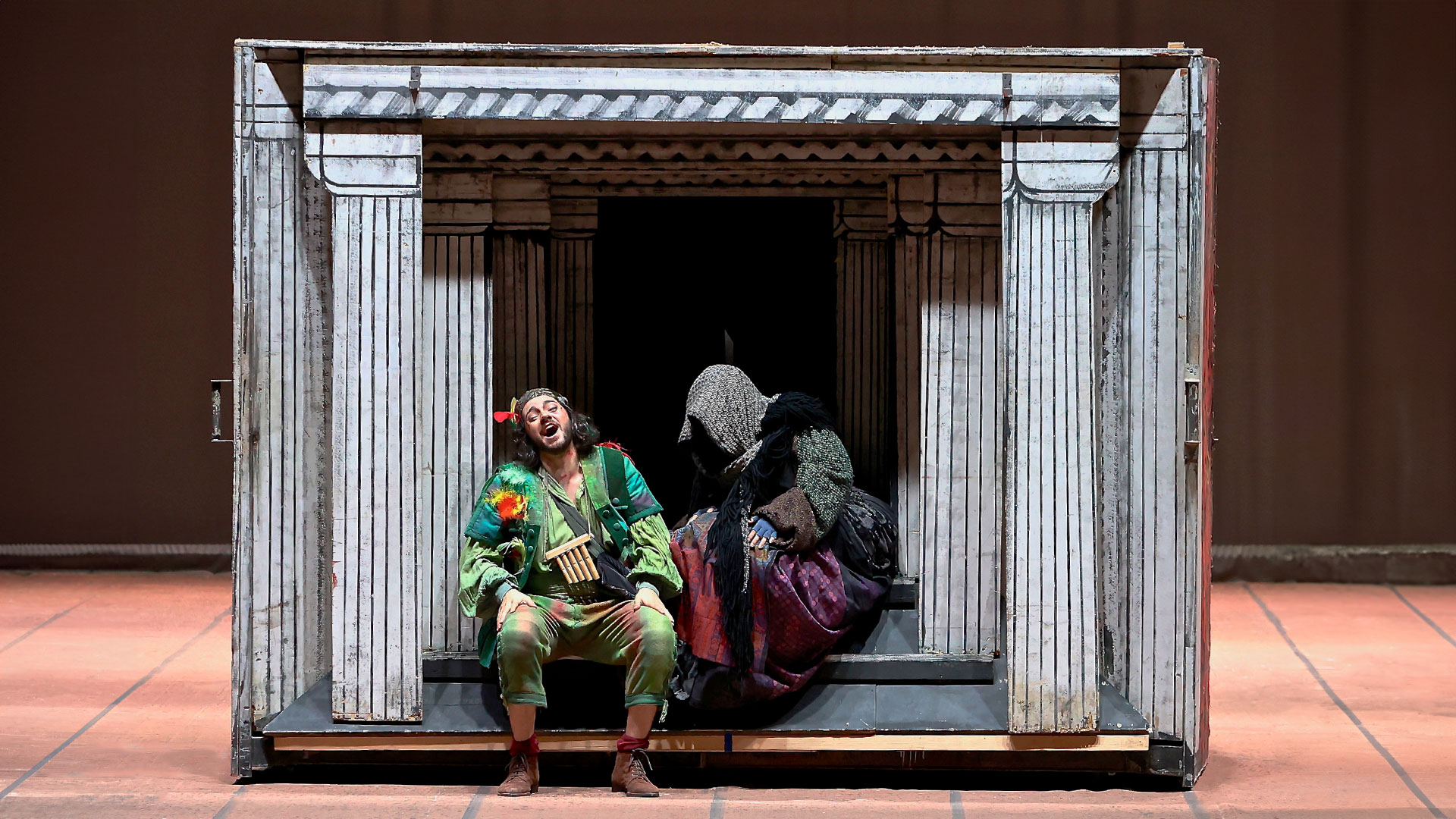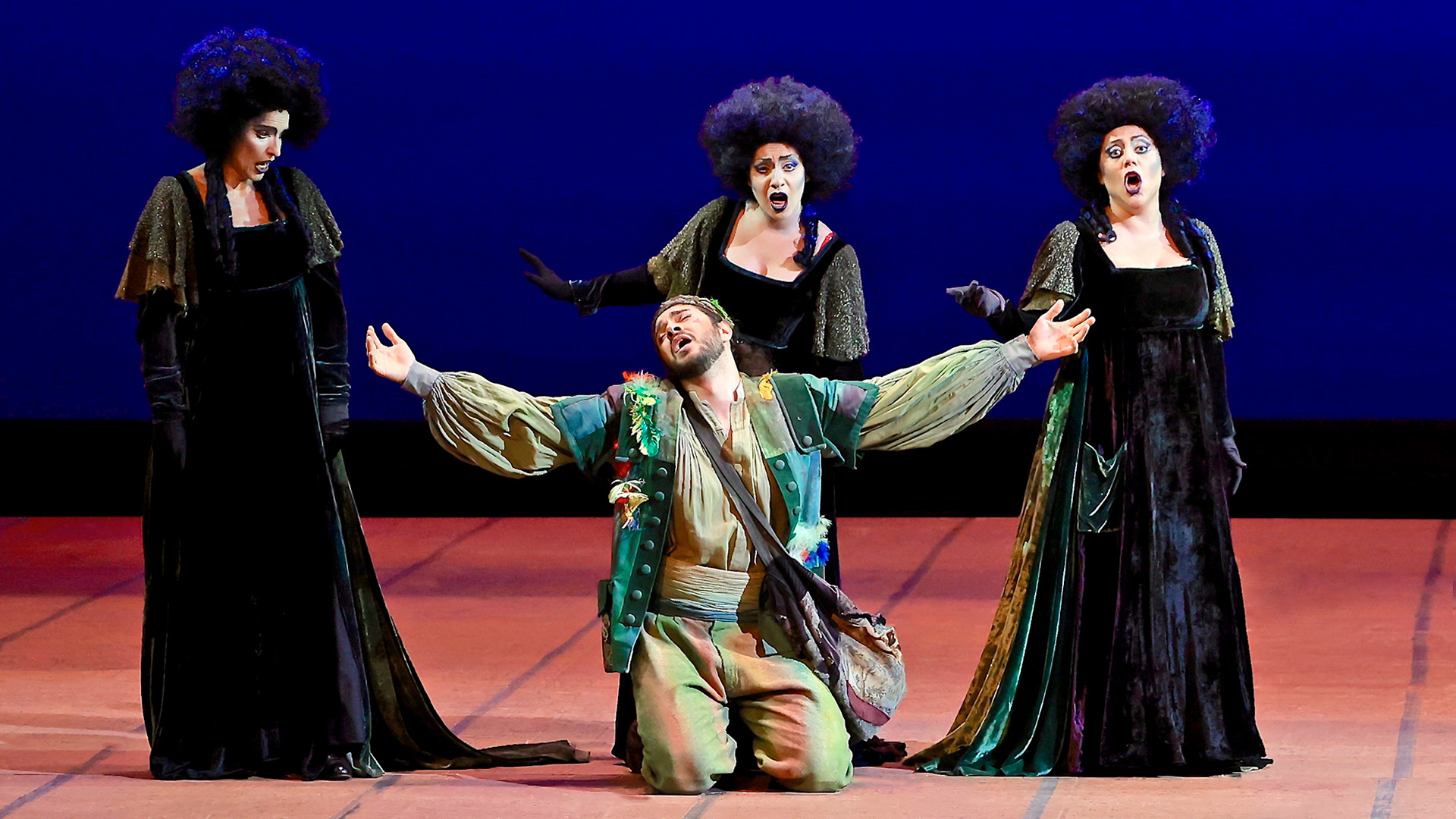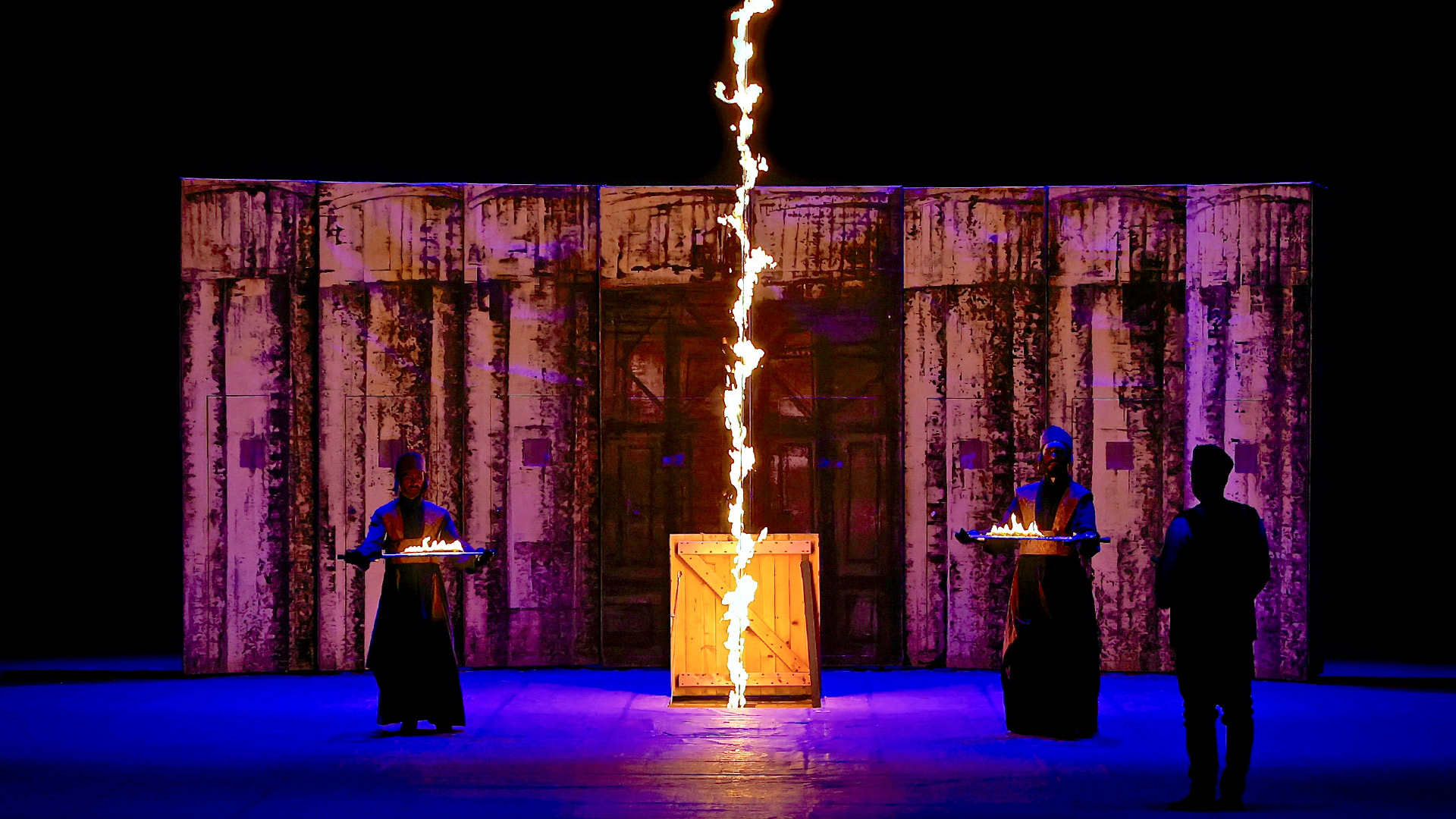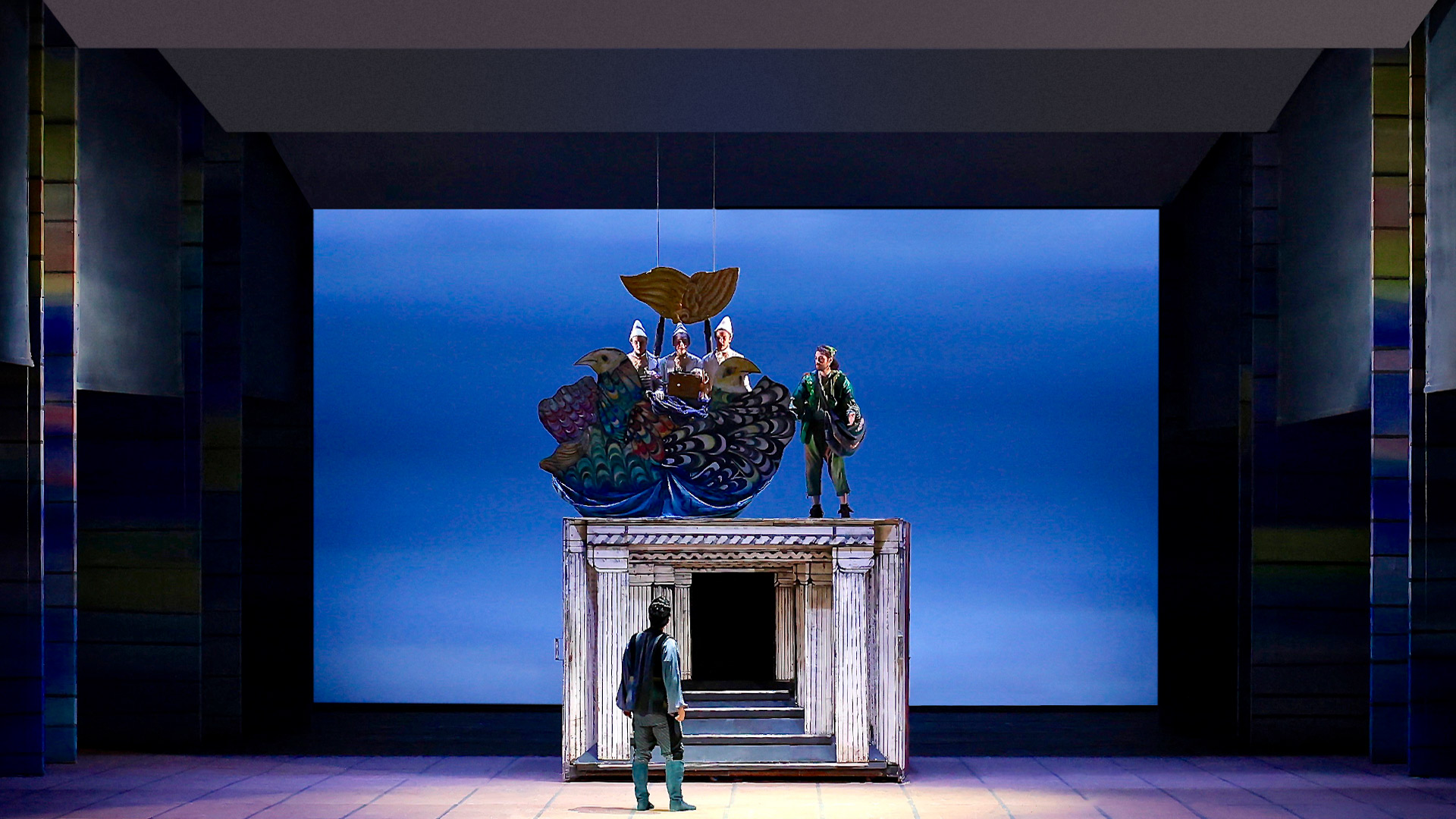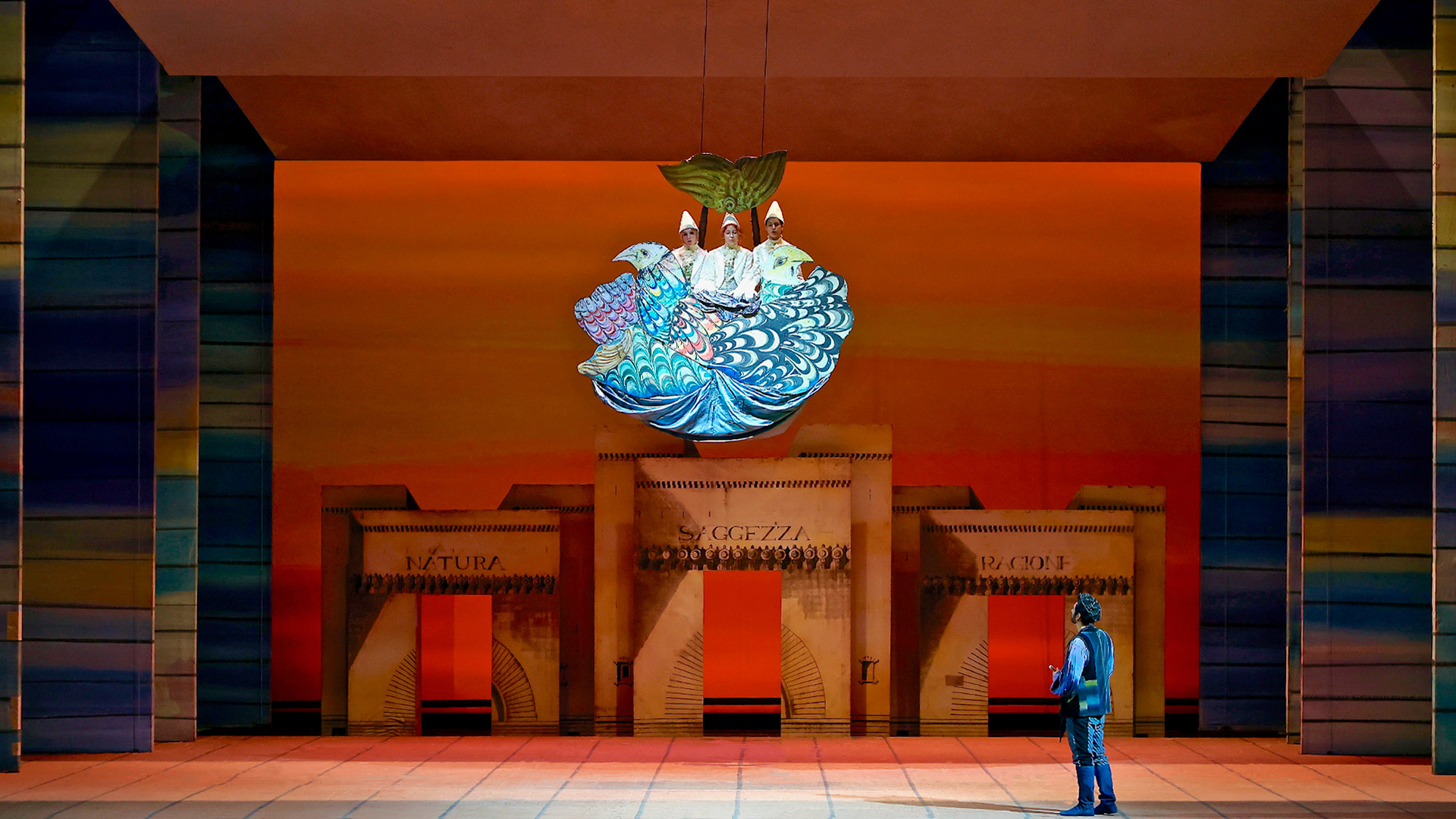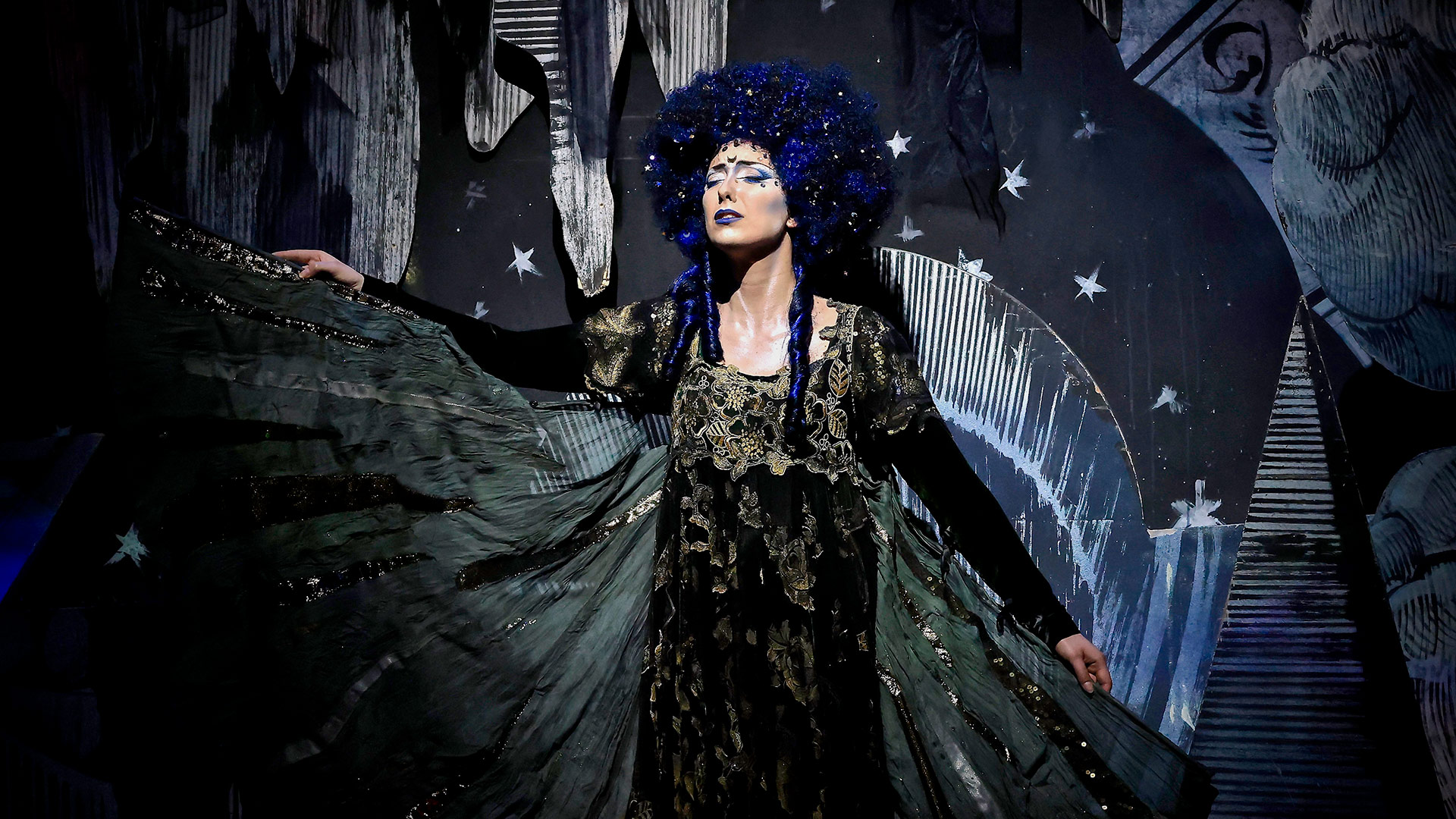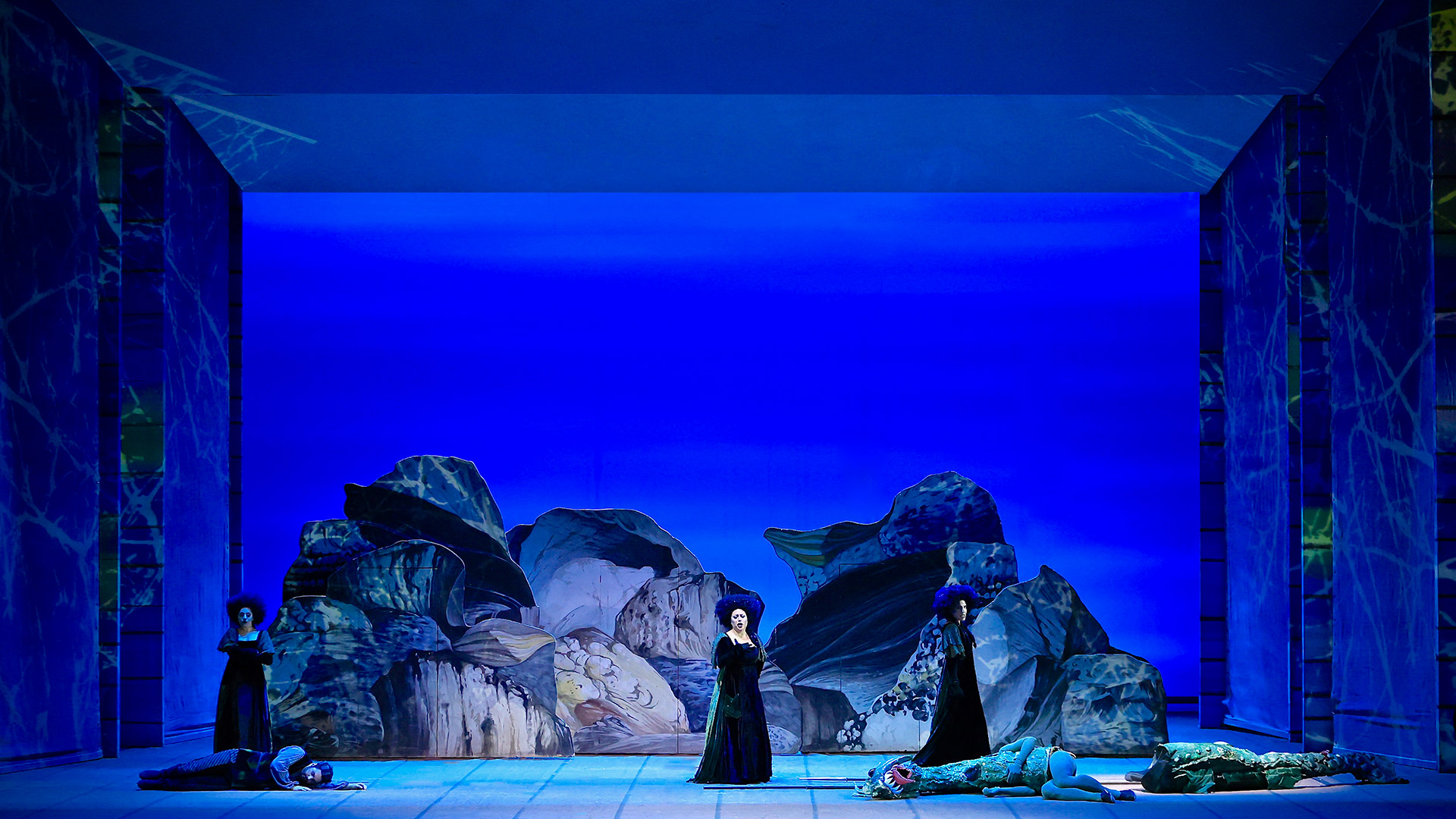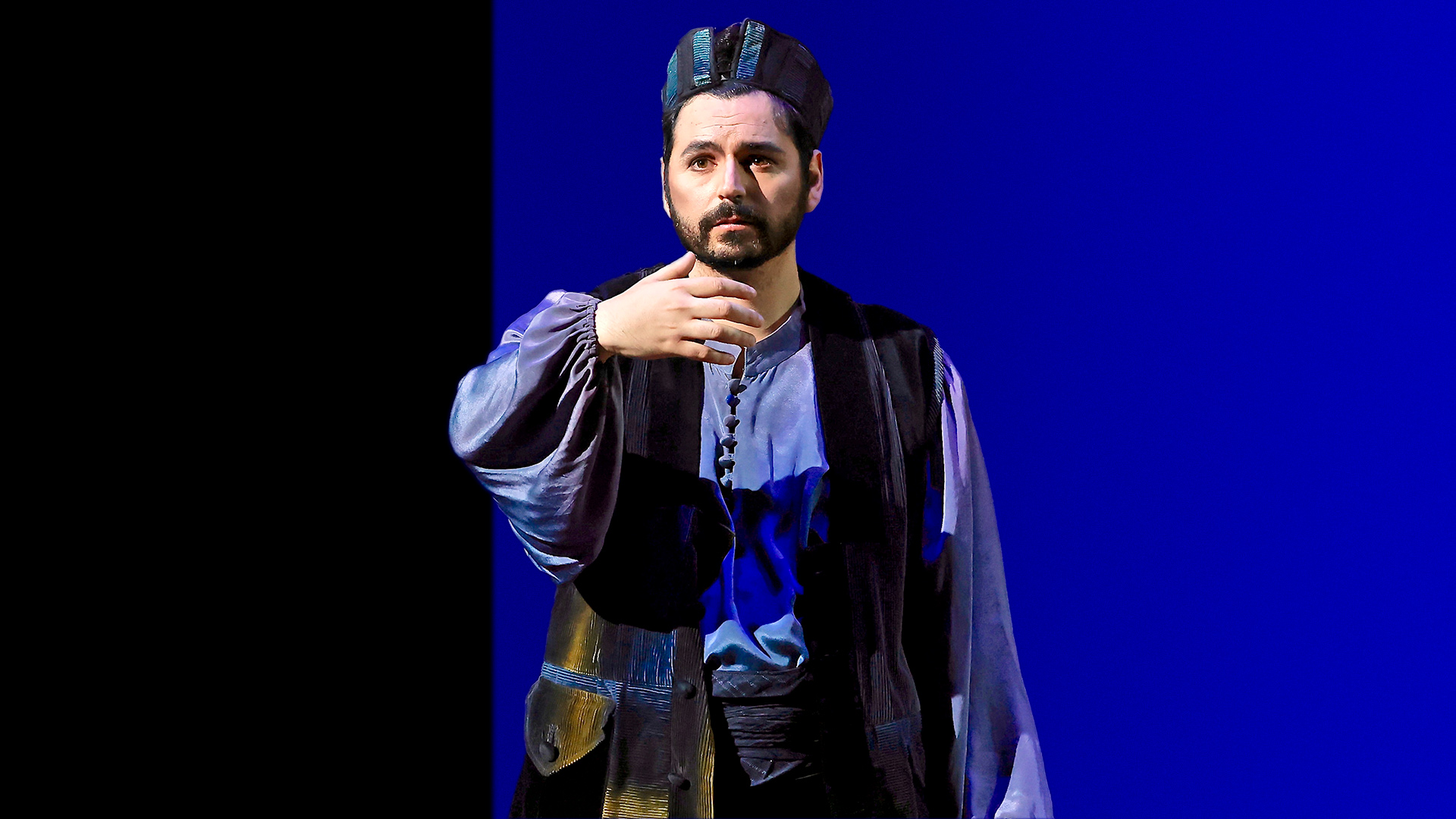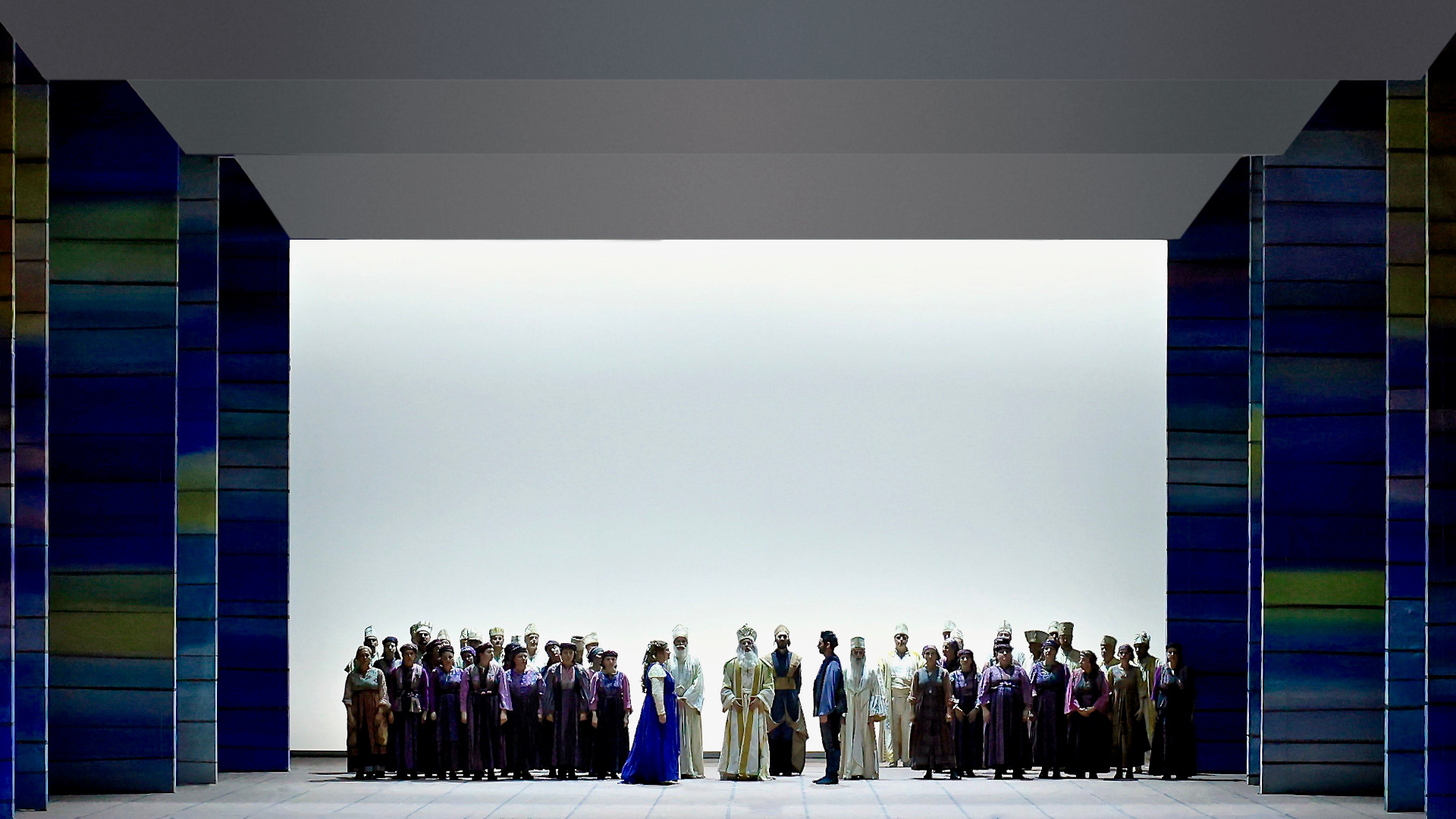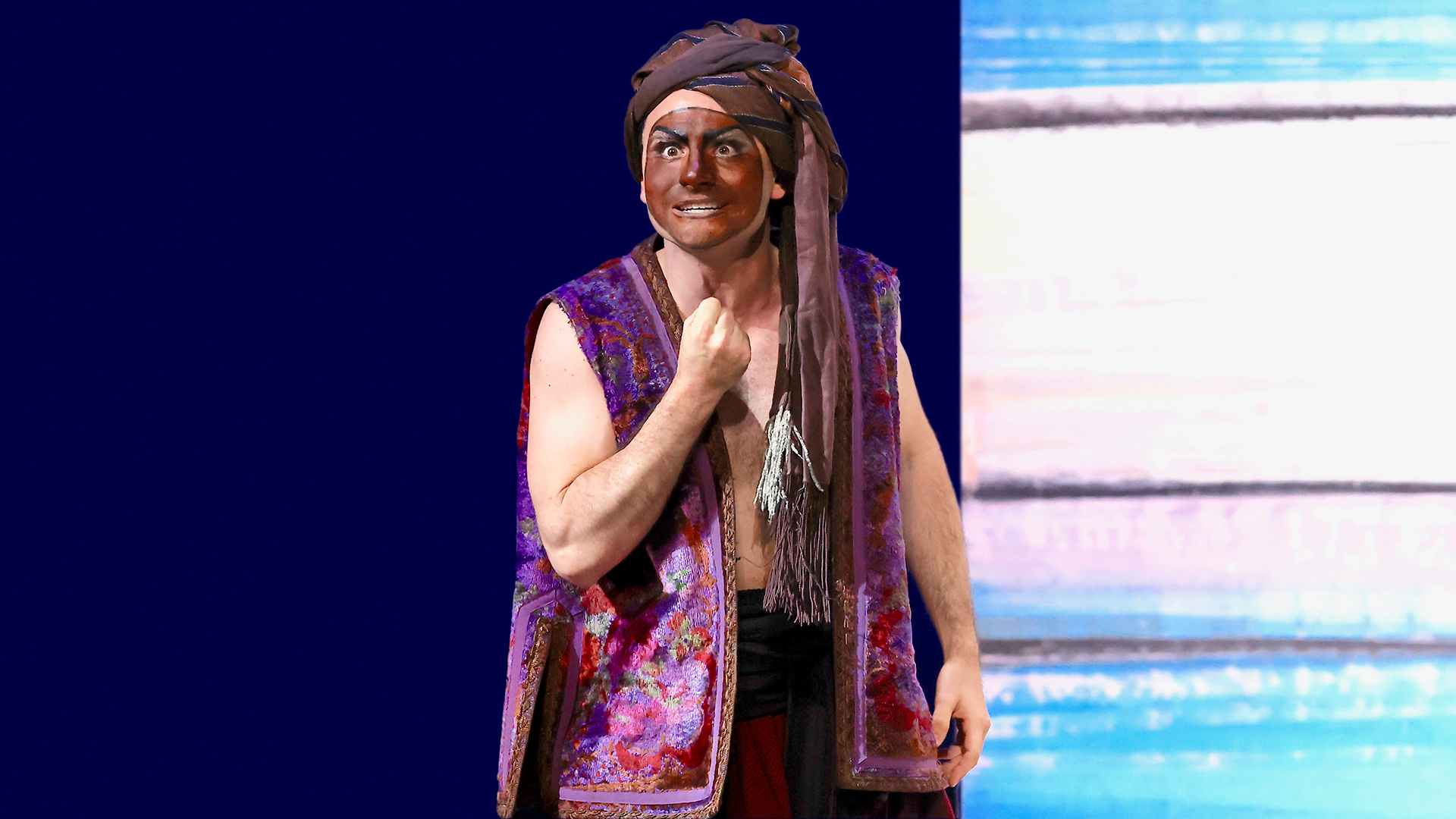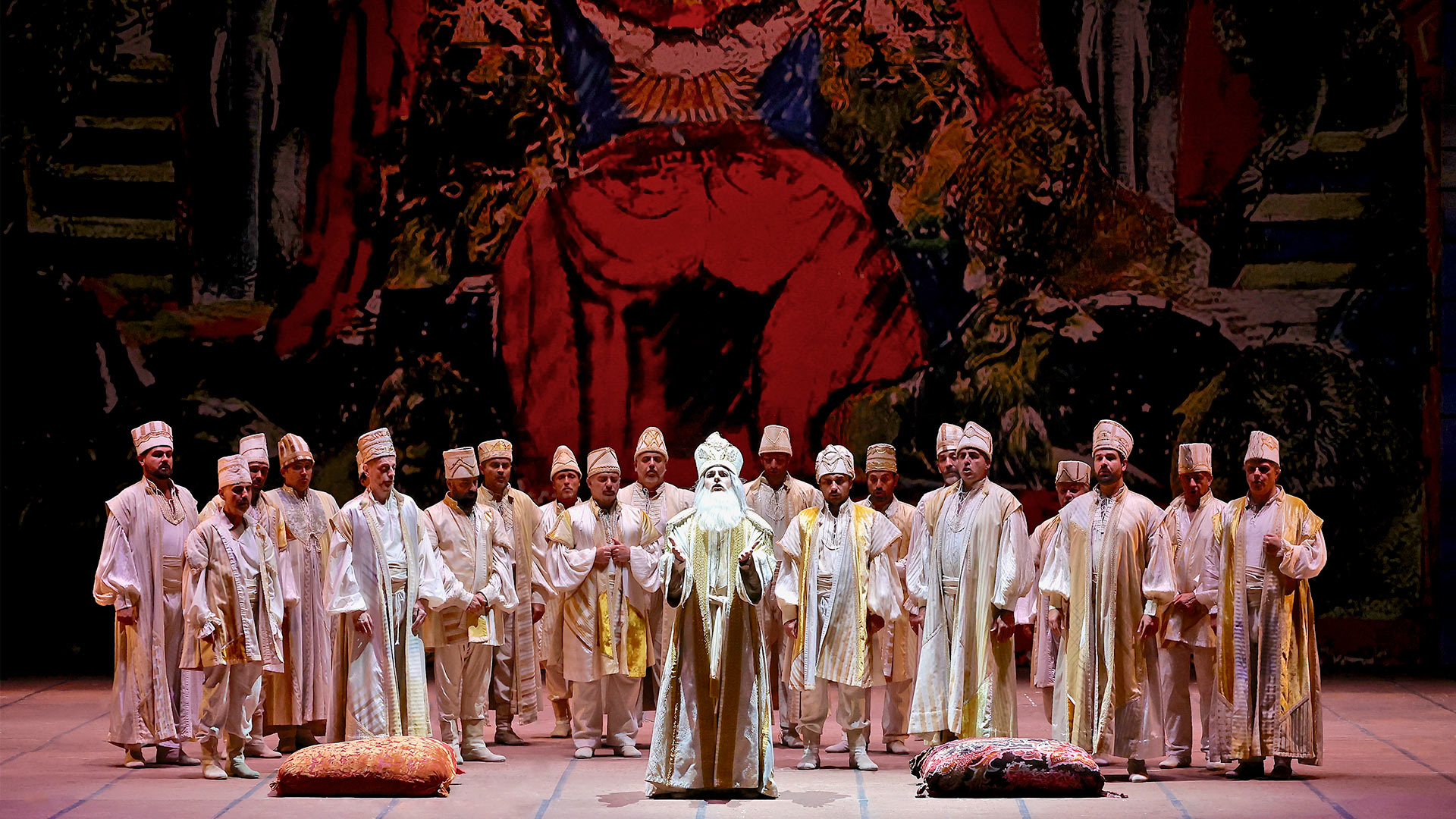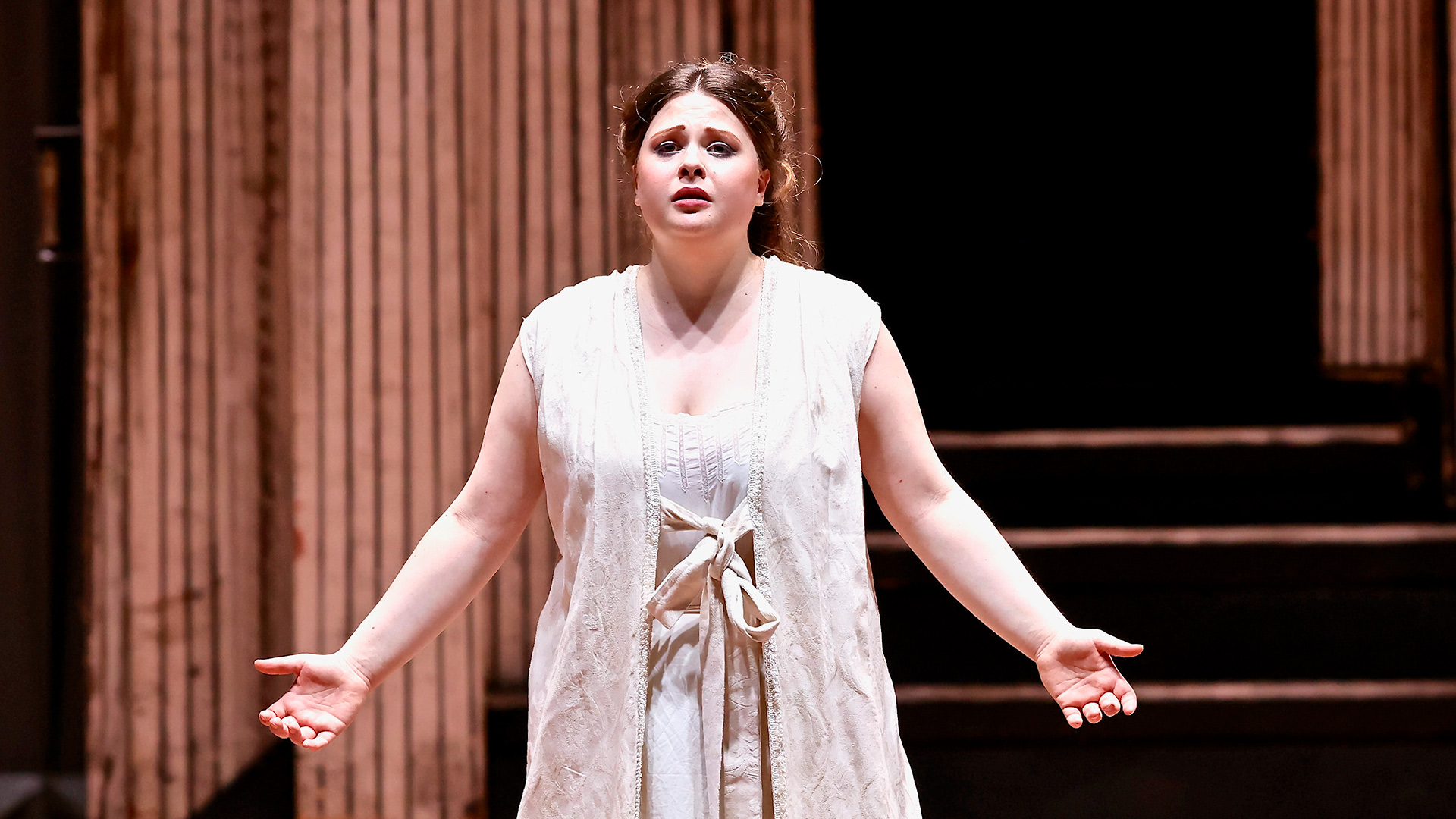Singspiel in two acts by
Wolfgang Amadeus Mozart
libretto by Emanuel Schikaneder
Characters and interpreters:
Sarastro
Antonino Arcilesi*
Giovanni Augelli* (14,20, 22)
Tamino
Samuele Di Leo*
Yiyan Gong* (14,20, 22)
Orator/High Priest
Luca Romano
Second priest/First soldier
Gianluca Moro
Queen of the Night
Martina Saviano*
Sona Gogyan* (14,20, 22)
Pamina
Gabriella Ingenito*
Ilaria Monteverdi* (14,20, 22)
First lady
Gesua Gallifoco
Second lady
Silvia Caliò
Third lady
Alena Sautier
Three geniuses
Arianna Russo
Vittoria Trapasso
Eliana Uscidda
Denise Colla
Michela Gorini
Lucilla Romano
(Soloists from the Children’s Choir
of the Carlo Felice Theatre)
An old lady (Papagena)
Giada Venturini*
Eleonora Marras* (14,20, 22)
Papageno
Ernesto de Nittis*
Willingerd Giménez* (14,20, 22)
Monostatos
Davide Zaccherini*
Timóteo Bene Júnior* (14,20, 22)
Second soldier
Davide Canepa
Three slaves
Thomas Angarola
Federico Benvenuto
Stefano Pavone
*Soloists from the Academy of Advanced Training and Professional Integration of the Carlo Felice Opera in Genoa, conducted by Francesco Meli
Produced by Fondazione Teatro Carlo Felice di Genova
Orchestra, Choir, Treble Choir and Technicians of Opera Carlo Felice Genova
Choir Master
Claudio Marino Moretti
Master of the children’s choir
Gino Tanasini
Concertmaster and conductor
Giancarlo Andretta
Director
Daniele Abbado
Assistant director
Boris Stetka
Scenes
Lele Luzzati
Costumes
Santuzza Calì
Choreography
DEOS
Lighting
Luciano Novelli
Die Zauberflöte (The Magic Flute), composed in 1790, is the second Singspiel in Mozart’s catalogue after The Rape from the Seraglio in 1780. The proposal to compose this title came from the Viennese singer and impresario Emanuel Schikaneder, who also wrote the libretto. Although the plot had originally been elaborated from Wieland’s novella Lulu oder die Zauberflöte, there were several substantial modifications made by the librettist, who gathered numerous other literary, philosophical and spiritual influences. Schikaneder, together with Mozart, his fellow Freemason, drew inspiration from various rituals typical of Freemasonry, emphasising, for example, the polarisation between Good (impersonated by Sarastro, High Priest of the Kingdom of Wisdom) and Evil (Astrifiammante, the Queen of Night). The Masonic-oriental subtext becomes fundamental, so much so that the story becomes a true initiatory journey of the protagonist Tamino towards the values of beauty and wisdom. The first performance, conducted by Mozart himself, took place at the Theater auf der Wieden on 30 September 1791. It was a huge success, leading to numerous revivals. Die Zauberflöte encapsulates all the most significant aspects of 18th-century opera, both stylistically and formally. Because of this and because of its experimental and innovative character, the opera soon established itself as one of Mozart’s most influential works, particularly with regard to developments in German romantic opera.
With the support of

